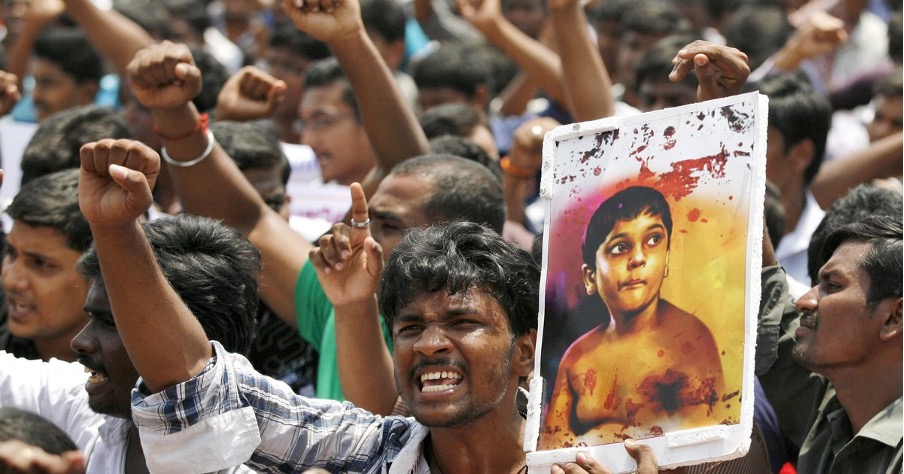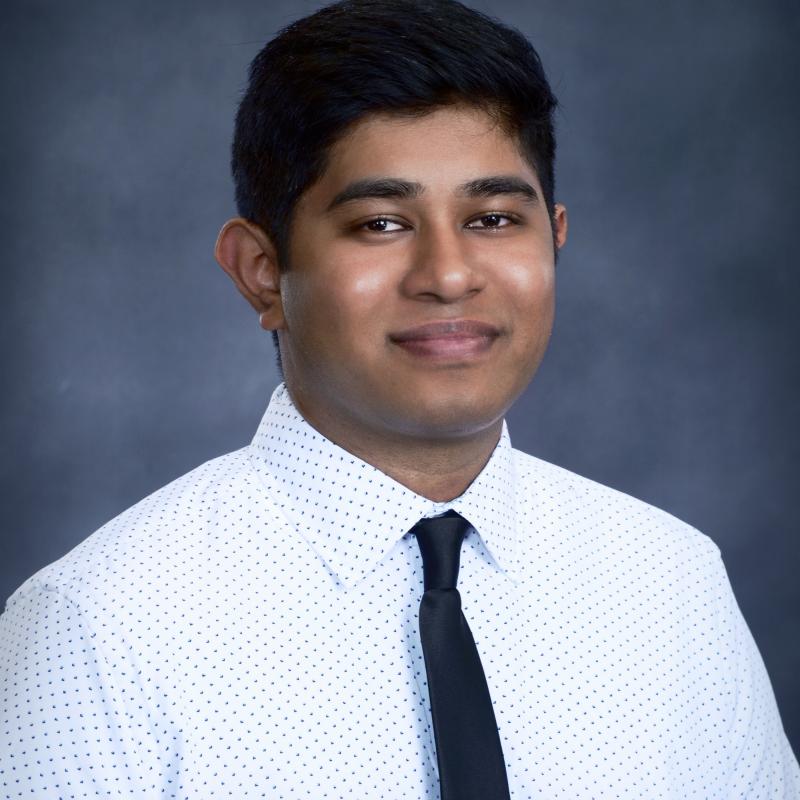When power shields atrocity: rethinking justice in a multipolar world
Ovith Thiyagalingam, MPP alumnus from 2023 specialising in border security, innovation, and human rights, reflects on how the impunity of powerful states for mass atrocities exposes deep flaws in international criminal law. He explores what reforms are needed to ensure no state is above justice in a multipolar world.

As a Tamil-Canadian whose community has lived through the trauma of state-led mass violence, I carry with me a personal awareness of what justice denied feels like. That experience, paired with my work at the intersection of security and human rights, shaped my approach to the Master of Public Policy at Oxford's Blavatnik School of Government. During the summer policy project, I turned to a pressing question in international law: why do powerful states consistently evade accountability for mass atrocities?
Despite the international community’s ambition to uphold human rights and prosecute war crimes, the reality is grim. States with significant geopolitical power—including the United States, Russia, and China—have repeatedly committed or supported atrocities while avoiding meaningful legal consequences. This impunity doesn’t just undermine the credibility of international institutions like the International Criminal Court (ICC); it fractures the very promise of global justice.
The system doesn’t work the same for everyone
International criminal law has made important strides since the horrors of the 20th century. The Rome Statute was designed to hold individuals – even state leaders – accountable for genocide, war crimes, and crimes against humanity. However, these tools often function best when the accused have limited global influence. When it comes to individuals from powerful states, the very mechanisms intended to uphold international law are easily neutralised through political resistance, selective cooperation, and sovereign immunity.
While any state can choose not to ratify the Rome Statute, powerful states can refuse to participate without facing the same diplomatic or economic repercussions. The United States, Russia, and China are not members of the ICC, meaning the court lacks jurisdiction unless the UN Security Council intervenes – for example if officials commit crimes on the territory of a member state, as in the case of Russia’s invasion of Ukraine. Yet these same states wield veto power at the Council, effectively immunising themselves from referral – except where crimes occur on the territory of an ICC member state. Still, the system remains a closed loop of impunity, reinforced by global power asymmetries.
In the aftermath of 9/11, the United States launched a global “War on Terror” that included the use of torture, indefinite detention, and covert rendition programs. These actions – widely condemned by human rights experts – remain largely unpunished. Successive U.S. administrations have blocked ICC investigations, citing national security and sovereignty. Despite clear evidence of violations, accountability is traded away for geopolitical convenience.
Russia’s ongoing invasion of Ukraine presents another stark example. Since 2022, thousands of civilians have been killed or displaced by targeted attacks. While the ICC has issued arrest warrants related to the conflict, Russia’s position on the UN Security Council allows it to impede any international efforts – including UN resolutions – that might otherwise pressure states to carry out the arrests. Its control over nuclear and energy networks further deters international confrontation.
In China’s Xinjiang region, state-led atrocities against the Uyghur Muslim population—which includes mass detention, forced labour, and cultural erasure—have drawn global condemnation but little legal response. China has used its diplomatic and economic influence to deflect accountability, portraying international criticism as foreign interference in its internal affairs.
Each of these cases highlights the same structural flaw: the international legal system struggles to function when the accused has power. This selectivity fuels a perception that international criminal law is not about universal justice, but rather about punishing the geopolitically expendable.
Why does this matter?
This isn’t just a theoretical concern. For communities like mine, which have witnessed mass atrocity crimes in places like Sri Lanka, the inability to prosecute individuals from powerful states resonates deeply. It reminds us that international justice often stops where geopolitical power begins. It raises difficult questions: can international law truly serve all victims equally? Does it merely reflect the power structures of the world it seeks to regulate?
I see another tension: while Canada promotes human rights globally, we also navigate strategic alliances with states accused of serious violations. Working in border security, where policy intersects with issues of migration, international law, and human vulnerability, these contradictions are impossible to ignore.
What needs to change?
If international criminal law is to remain credible and relevant, reform is essential.
First, the ICC’s jurisdiction must expand. Although there are paths to investigate non-member states – such as territorial jurisdiction or Security Council referral – these states often avoid direct scrutiny by remaining outside the Court’s formal reach. One solution is to allow the ICC to prosecute mass atrocities regardless of membership status. This would require amendments to the Rome Statute and broad multilateral support – a heavy political lift, but arguably a necessary one.
Second, co-ordinated international sanctions can act as a tool of accountability when prosecution stalls. States and regional alliances can impose economic and diplomatic costs on atrocity perpetrators, even when formal legal routes are blocked.
Third, civil society has a critical role to play. NGOs, journalists, diaspora networks, and survivor-led organisations often lead the way in documenting abuses and pushing for justice. Their work holds space for truth, even when formal institutions fall short.
Rebuilding trust in international justice
A rules-based international order cannot survive if its rules only apply to the less powerful. The future of international criminal law depends on restoring the principle that no state – no matter how powerful – is above justice.
It also depends on people. As future policymakers, lawyers, and civil servants, we have a responsibility to ask: are we reinforcing the status quo, or challenging it? Are we building systems that genuinely protect the vulnerable, or merely symbolic ones that bend under pressure?
These aren’t abstract questions. They are urgent, affecting our own lives and those for decades to come.

